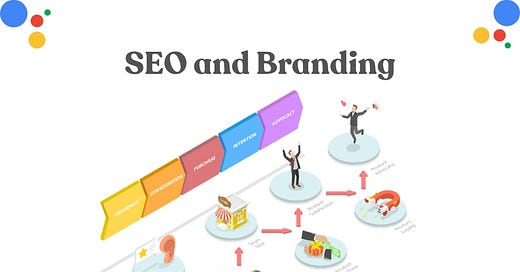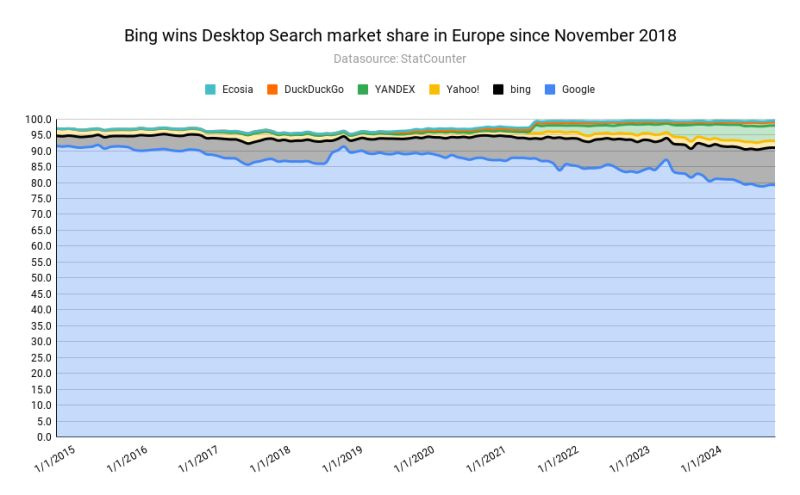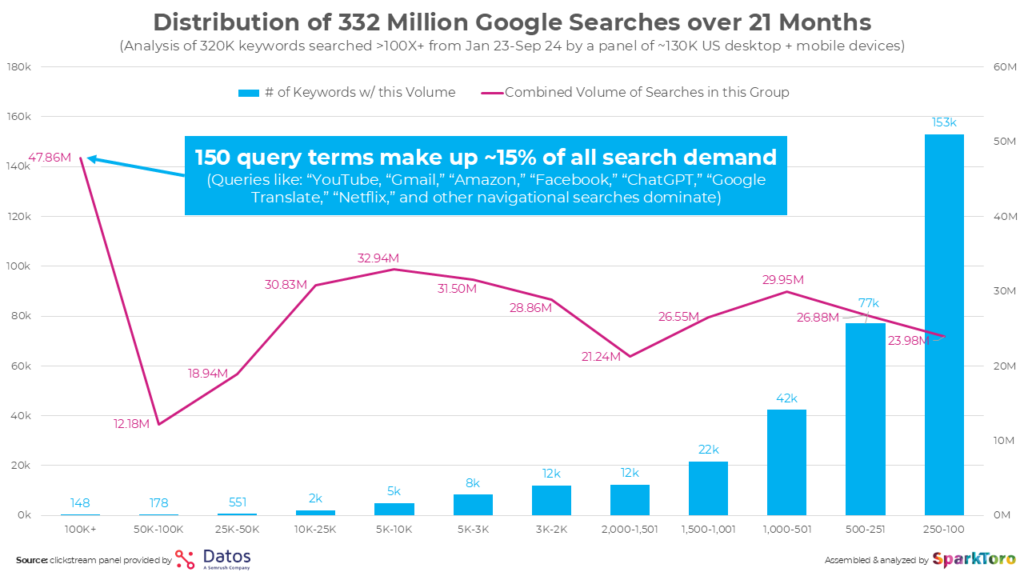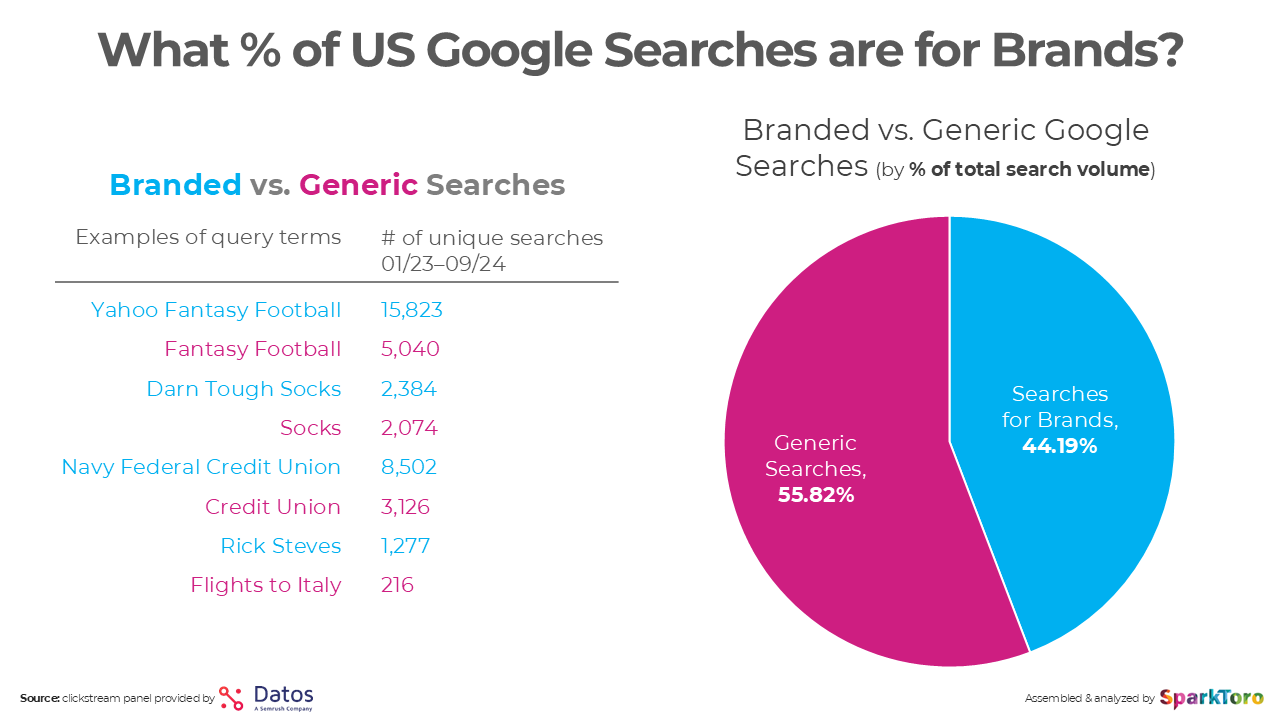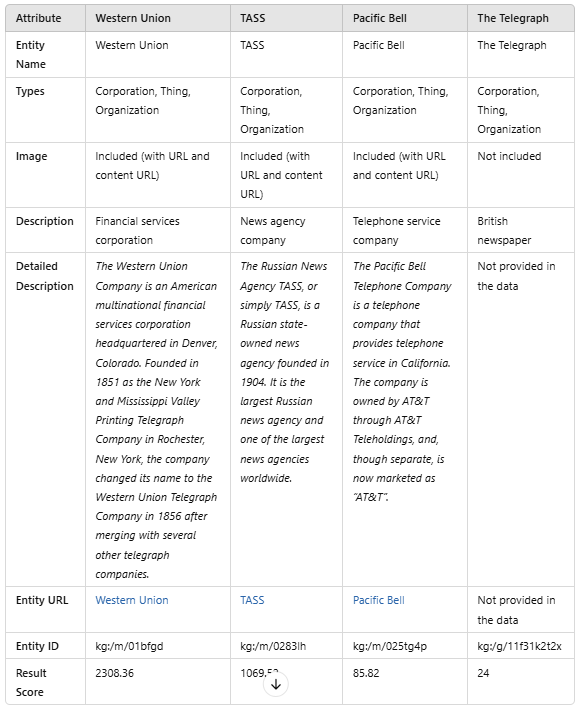Understanding branding and SEO
How to make the most of your brand in the internet's most vanilla channel. Be bold and create unrivalled content and experiences
When I started doing SEO I thought “ooh, this was a bit of me.” In hindsight, I don’t know why.
Picture the scene. It’s 2016/17. I’m working for an SEO agency. This agency has just poorly migrated a website and handed me an Excel sheet with 100 links to update. The incumbent SEO Lead was, being kind, lazy. Being fair, incompetent.
Hopefully, he’s not a subscriber…
“Just find a contact email for each link and ask them to update it. It’ll only take you a day.”
It didn’t, obviously. I think I got one link updated out of the 100. Presumably the two days I spent frantically finding shitty email addresses were billed at around £1500. A ‘blended’ rate. And people say the agency model isn’t broken.
Christ knows why this felt like a good career move. But after two and half years in recruitment, anything felt like a positive step. There’s only so many times you can get told to ‘fuck off and stop calling me’ pre 8am before you question your life choices.
I tell you this pointless preamble for only one reason. Rarely, at any point in my SEO ‘journey,’ did I think I’d have to seriously consider branding. I just thought it would fall at someone else’s feet.
But here we are.
TL;DR
SEO is foundational, not standalone: It shines when combined with strong branding and multi-channel audience engagement, like social, newsletters, and events
Content and links still rule: Memorable resources and quality links still reign supreme. Yes, even in 2025
Build a strong brand entity: Focus on driving branded traffic rooted in the strength of your reputation and product, not just keywords
Trust and connection matter: Prioritise E-E-A-T, exceptional user experiences, and genuine authenticity to stand out
Understanding SEO and branding
You can’t build a brand through SEO alone. It’s just not how people find brands for the first time. It’s too narrow a part of the customer journey for this to realistically work.
People primarily use Google to answer questions, navigate to brands they already know about, consume news and compare things. It’s far more complex than Google’s The Messy Middle.

This is why trust, particularly brand trust is so important. Because people have options and it’s rare that users find you and become ‘fans’ through SEO. As much as I hate to admit it, it’s not a ‘fun’ channel. Product and brand research happens everywhere.
You have to own it.
There are exceptions. Companies that provide a unique service that dominate the search landscape. But I’d wager they still have prominent social accounts. Or a way of engaging with users somewhere else.
But why does it matter for SEO?
Because SEO is getting harder and harder. And Google is becoming simultaneously worse and more money-orientated. Amazing how people and brands that have so much are never satisfied. There’s always more to be had.
The strongest, most resilient businesses and brands are not solely reliant on a single source of traffic or revenue. If you went to a financial advisor and told them you had 98% of your savings tied up in Dogecoin what do you think they’d say to you?
“Interesting. How wedded are you to both of your kidneys?”
The same is true of search. Is it still the best value traffic? Probably. But there are so many alternatives. And frankly better ways of building a connection with your audience.
Almost every publisher will be forced to paywall their content over the next few years. Whilst I have been writing this, Press Gazette has begun rolling out a paywall.
People will have to get used to paying for news again. The ecosystem Google has build isn’t changing favourably for publishers.
How can I build a strong brand?
Not through search. At least, not only through search. You have to build experiences with people that they care about. And search has become so transactional.
Rand Fishkin recently released some research highlighting how binary searching in Google has become. It’s dominated by a limited set of keywords and branded queries that the best option is to build something so good that people remember it by name.
And for that to happen to need to engage with people across multiple channels. The most successful brands in search will be the ones that master alternative channels and formats.
And you really need to think about whether SEO is a channel you should invest in as a smaller company. Cutting through is just so difficult. The only way this is worthwhile is if you have an amazing product, a sellable founder(s) and/or a competitive advantage.
And money. Don’t forget money.
Yes, it’s still hard to cut through on social channels. But you have to be bold. And what about real life? Building connections with people in places where they actually live and breathe.
To clarify, I don’t mean in their homes. I mean more at something like a digital marketing event, a Subreddit or a pub or something less shit.
Create something meaningful
This could be a product. An experience. Incredible informational or educational content. A connection. Anything. As an SEO or marketer, you need to leverage your competitive advantage.
This ‘fat head’ of 100k+ keywords is dominated by navigational queries to huge brands with enormous market share. Whilst it might be unrealistic for your pokey little brand to make it there, it does visualise what people really use Google for.
To find things they already know about.
So, once you’ve built that product, idea or connection you need to establish its primary channel. Nail it. Then diversify.
Money Saving Expert (Martin Lewis)
Martin Lewis is the reason MSE has been so successful. When your business is so entwined with a high-profile figure (Elon at Tesla, Big Jeff at Amazon), it’s a different beast. People are aware of your products through multiple means, and building a strong profile builds incredible diversification.
The brand and person are so intertwined that when you search for ‘Martin Lewis,’ the top result is Money Saving Expert. Which feels bizarre. But it’s what people associate with the name.
Sparktoro (Rand Fishkin)
A more SEO-y angle, but a really good one. When Rand stepped away from Moz he had built up an incredible personal brand. One that was easily transferable. So when he built Sparktoro, his personal brand helped light the touch paper and the brand soon outstripped his own popularity.
How can I do this through SEO?
At the risk of this being a bit of a Rand love-in, this is another excellent illustration of why SEO is only a part of the puzzle. It’s always been this way. But search as a channel has been so prolific and crucially, easier to report on than something like social. There’s a very tangible output and the traffic quality has been excellent.
Even if that hasn’t always translated to budget.
However, that’s exactly why so much budget is apportioned to paid search. Spend x, get y. Even if the y just takes away from branded queries that otherwise would’ve come through search…
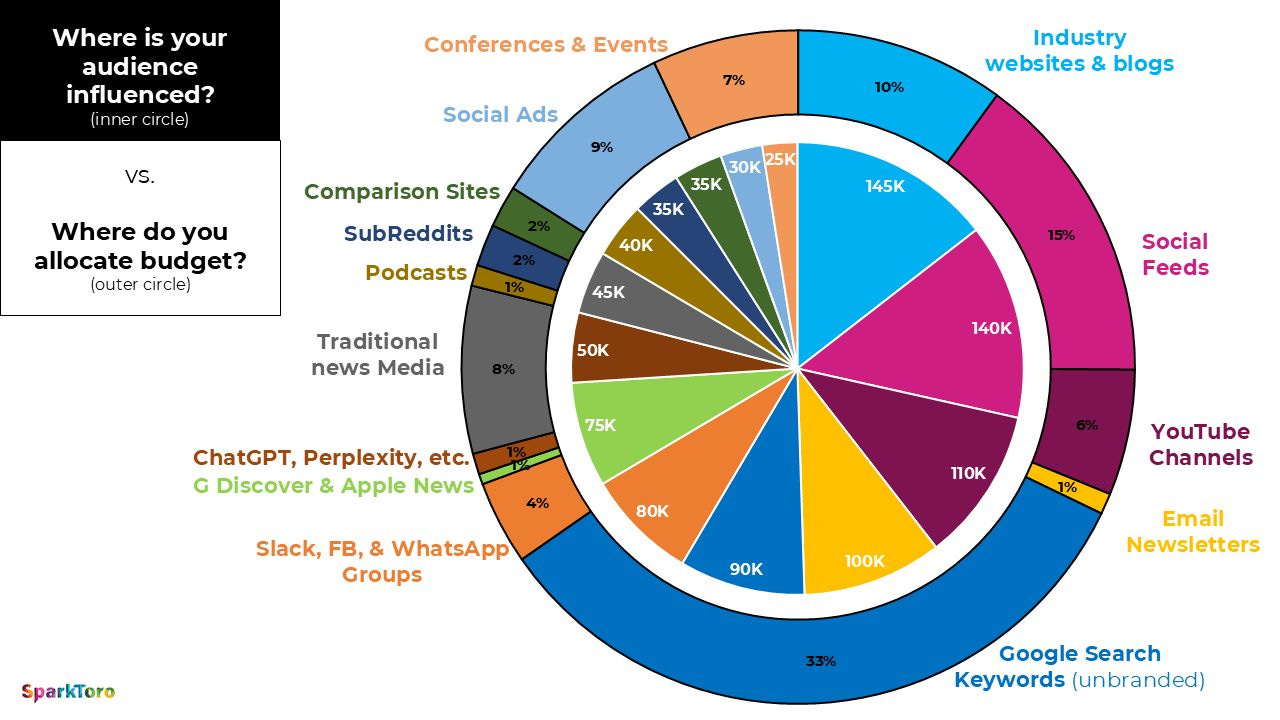
But now more than ever things are shifting. People are less reliant on Google to find what they need. Users learn about your brand via a number of different mediums; podcasts, video, forums and social channels before they find you through SEO.
SEO is just a part of the puzzle.
You have to be where your audience is. However they search for the product you sell or the problem you solve, you have to be there. Right place, right time. Before they even know they need you.
Everything matters;
Subreddits
Events
Influencer marketing
Newsletters
The end goal is, of course, to sell what you’re selling. But to get there you need to build trust and a connection. The ultimate goal is to not rely on search. It’s to have access to your customers in a more personal channel.
E-E-A-T
I’ve written in-depth about E-E-A-T for publishers and how important it is for your brand. Being transparent. Demonstrating clear expertise. Highlighting your experience. Everything brands have to do to keep up with user demand.
In an era of spin, building trust and connections with people is the only surefire way to win. And it goes far beyond SEO. Building a site that matches the quality you put out across every channel and creating a seamless experience.
Branded traffic
The sweet holy grail. Beautiful branded traffic. traffic that comes through search, but is usually driven through the success of alternative channels. Traffic where you can’t fail to rank number one.
Short of noindexing the site or some other form of supreme fuckwittery. (Don’t do this, it’s shit).
And I don’t just mean ‘The Telegraph.’ I mean something like ‘Telegraph Fantasy Football.’ Branded products you build that enhance the quality of your brand, that drive high-quality, relevant links and - crucially - are broadly aligned with who you are and what you do.
Let’s not go down the site reputation abuse nonsense again, shall we…
Content clustering
I know content clustering is a bit 2019, but hear me out.
The old hub-and-spoke approach is a bit dated but really important in this context because it forces you to think about content across sources and mediums: product pages, articles, videos, podcasts, infographics, tools, live blogs, and everything in between.
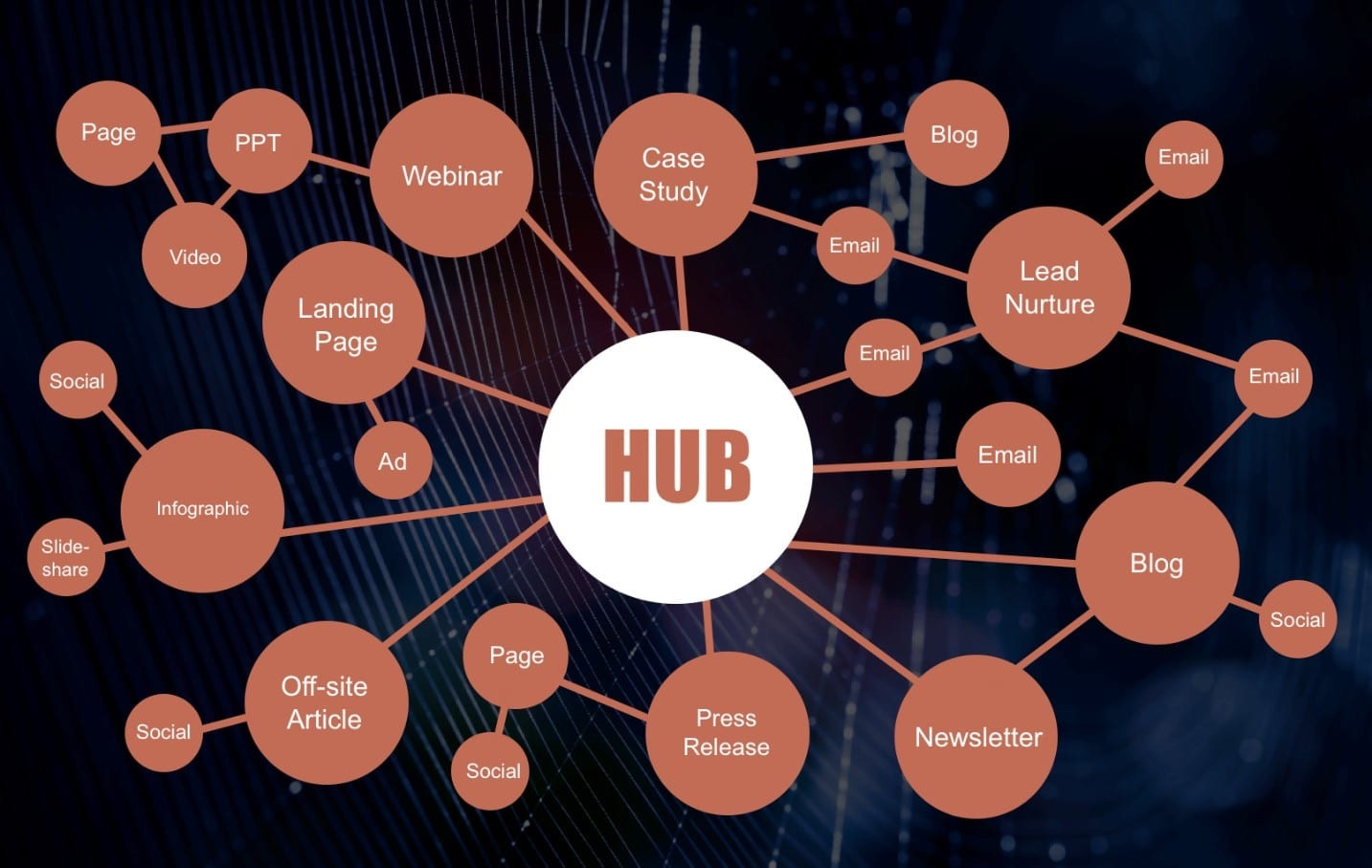
The days of written content being effective as a standalone product are fading for brands. And yes, I’m aware I’ve recently started a written medium. But people trust people and I’m not bound by a big brand red tape.
Ooooh you can’t say that. What will people in the comments say. What about our bottom line.
You’re still dourly sucking vanilla while I’m out here blending durian fruit and surstromming.
Sure it stinks to high heaven, but it’s memorable.
Links
I want to think less about generating backlinks for your business and more about appearing in the right places. While guest posting may not drive a particularly high-quality link, it can be a shop window for your authors.
To be clear, I’m talking Harrods, not Londis - or at least something in between.

Links that drive quality referral traffic to your site are the gold standard. I am not that interested in how Google perceives the quality of a link. I’m interested in people seeing me or the brand I work for in the right places.
As a subscription business, are users more likely to convert if they come from another source they trust?
Absolutely.
If they see your author on another industry-trusted site, are they more likely to trust your brand?
Absolutely.
Links matter. And not just for Google rankings. They’re a signal of trust for users if you do them well.
Site speed
You might think that technical SEO doesn’t matter a jot when it comes to branding. But you’d be fundamentally misunderstanding the importance of user experience.
I hate to break it to you, if your content’s great, but loads slowly, it’s shit. We’ve become like goldfish. Why wait four seconds for something great, when you can have something mediocre in one?
User experience and the quality of your brand are intrinsically tied to technical performance. That’s why Google rolled out Core Web Vitals: to help site owners understand how to load their sites efficiently for people.
As a great man (me) once said, “site speed can’t save mediocrity. If your content sucks but it loads quickly, people just find out it sucks faster.”
Entity Matching
This is a really interesting one for those of you interested in entity SEO. You can use the Knowledge Graph API to search for your own brand (Organization) and see how well ‘matched’ your brand is.
The Knowledge Graph API will return a JSON response that includes;
The entity search result
Description
An entity ID
Organisation name and description
An entity search result match ‘score’
This is the result for ‘The Daily Telegraph,’ when searched using ‘Organization’ as the type.
Whilst this might look a little bizarre if we then run the same query for ‘The Telegraph’ (our actual brand name), ‘The Sunday Telegraph’ comes in fifth position. Ambiguous and intriguing.
This is a fantastic example of why entity matching (particularly for brands with multiple fragmented entities) is so important.
If it’s so hard to categorise ‘The Telegraph’ (a query with admittedly some ambiguity) as the primary organisation for the brand name, what has happened?
The low results score indicates that the brand (The Telegraph) isn’t that closely associated with the query The Telegraph
The query The Telegraph is generic and associated with telegraph-related companies and services (e.g., Western Union, TASS), diluting the association between the query and the British newspaper.
The brand The Telegraph is missing some key information, including
URL: A direct link to its official website is missing.
Description: There is no clear description or category.
Detailed Description: Unlike competitors like Western Union or TASS, the response does not include rich data like an articleBody or a Wikipedia link.
Entity ambiguity: Google’s Knowledge Graph associates The Telegraph with multiple entities, including ‘The Sunday Telegraph’ and ‘The Daily Telegraph,’ leading to potential fragmentation in Google's understanding.
Compared to the NYT
We also need a comparison - something to see how we compare to much more dominant brands.
The NYT’s Knowledge Graph search returns something so much more detailed. With a score over 60 times higher than ours. 60 times. Here’s a comparison of the two;
The NYT result has much richer metadata. Image, description, detailed description with a rich articleBody and Wikipedia URL.
How to improve entity SEO?
Structured data adds precise information about websites and individual pages. These breadcrumbs provide much needed clarity for search engines. In an era of ‘fake news’ the more clarity you can provide the better.
Add Structured Data: Ensure that structured metadata (e.g., schema.org/Organization) is thoroughly implemented, including images, description, and detailed description fields.
Use sameAs structured data for multiple entities (E.g. The Sunday Telegraph, The Daily Telegraph)
Ensure name, description, and logo are accurately defined
Optimise Content Sources: Verify and update your Knowledge Panel, Wikipedia, Wikidata, and other key sources to include accurate, descriptive, and authoritative information about your brand.
Official Website: Add a URL pointing to "https://www.your-brand.co.uk" in the Knowledge Graph
Include a concise description, e.g., "A British newspaper covering global news, politics, and culture"
This can be managed via Google's Knowledge Panel Claiming if you don’t have one
Enhance Entity Signals: Review your current anchor text, mentions and citations through your backlink profile. Is your brand name clear and obvious? Do you need to do some brand awareness?
Image Inclusion: Add a representative image for The Telegraph to align with competitors that feature strong visual elements.
Barry Adam’s guide to structured data for news publishers is, as ever, superb.
How can I measure brand awareness?
Branded traffic
You want to see your branded traffic going up over time. This is easy to track. You want to see two things;
Searches for your brand are going up
Searches for branded products are going up (E.g. Telegraph Puzzles)

Branded traffic is relatively simple. Create something memorable - a product, experience, person etc. Rank as well as you can and utilise all channels at your disposal. Iterate.
Backlinks (referral traffic)
Backlinks are easy to track. If you have something like ahrefs (the best big database for backlinks), you can track the type and quality of links over time.
I suggest tracking;
Number of backlinks
Quality of backlinks
Referral traffic
Anchor text
Linking authors
Quality is a slightly more intangible option. Domain or URL authority can be useful if you understand its inherent vagueness. The best example of quality is the amount of traffic the page in question gets and the amount of referral traffic you generate from it.
Over time, you want to see links from highly relevant, trusted sites in your space increasing (a clear sign you’re respected in the industry) and a blend of brand-match and industry-specific anchor text.
For smaller sites, looker I suggest setting up a Looker Studio dashboard to track links and referral traffic over time. This dashboard from Ivan Paali integrates with GA4 and provides real traffic data. A perfect free option.
Mentions
Set up an alert in Google Alerts for any mention of your brand name. If your brand name is something generic like ‘Apple’ (perish the thought), then track something slightly more specific. If you have enough existing Search Console data, then use it or a third-party tool to see how people search for your brand.
As a publisher, I would recommend setting alerts up for your brand name and key authors. You can track mentions of their name over time to see whether they’re going up. This should help refine your approach to improving author profiles.
Reviews
There’s still nothing as powerful as the opinions of our peers. Particularly for brands that sell a physical product. Almost everyone reads reviews when purchasing a product. Everyone.
Whilst they’re not directly in your control, it’s pretty straightforward to encourage reviews from ratified purchasers. According to research from Power Reviews, shoppers who visit a product page with up to 10 reviews are 52.2% more likely to convert than those visiting a page without any.
Whilst it doesn’t directly relate to brand awareness and quality. Reviews matter. People trust people.
Summing up
Woof, that was a longy. But interesting I think.
You need to create a multi-channel strategy. In bigger companies, this means removing barriers between teams and ensuring social, paid, brand and SEO teams understand each other’s goals.
Creating a brilliant user experience starts at your first touchpoint. Be memorable and above all, be bold.
Claim your knowledge panel
If you have one, update and improve your Wikipedia page
Utilise structured data to link your properties and authors across the web
Run brand awareness projects
Build highly relevant links
Make sure your site loads quickly
Work on improving your author profiles (on and off-site)
Respond to reviews
If you don’t have a Wikipedia page, don’t despair. This is a really good guide on how to write one. You need to be a brand of note to some extent.


